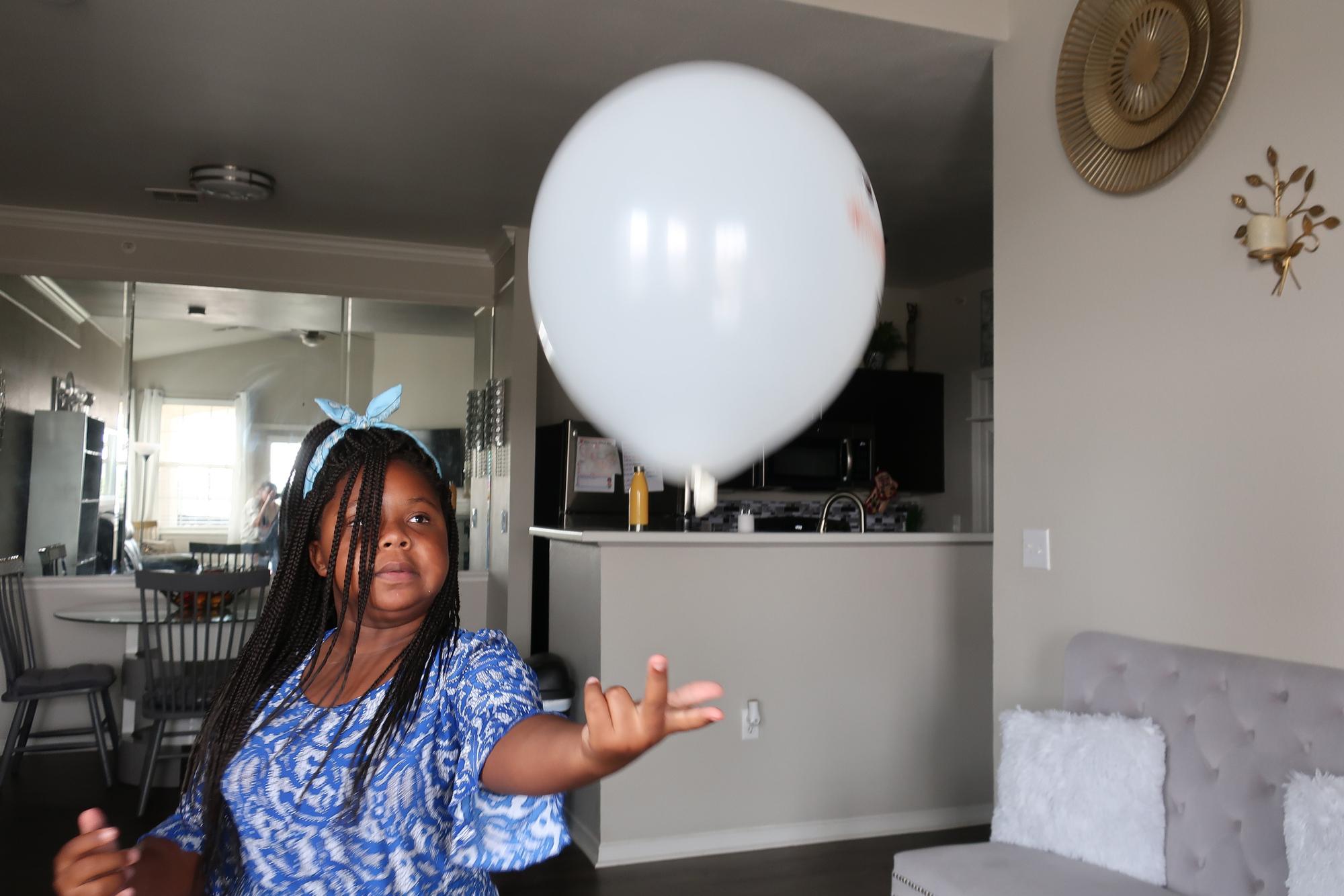
The last time incoming fifth-grader Clarissa Coleman, 10, was in school, she was a third-grader. This school year, she’s excited to make friends and to learn all her times tables and division. When asked if she’s worried about anything, she hesitated.
“Well … ”
Coleman tilted her braided, blue-hair banded head back to think. There was a long pause.
“… not really.”
Clarissa finally confessed she’s worried about whether there will be a crossing guard when she walks home.
She wondered what school lunch will be. How long will the playground slide be? She’s “in between” on being worried about making friends. She said she knows one thing for sure — she’s bringing multiple masks with her. Clarissa said she finds masks particularly problematic.
“For me, I have allergies so when I have to sneeze with a mask on, my mask gets all gross, and if I don’t have a change of mask then I have to sit around in a wet mask,” she said. “Even when I talk … ’cause I do that a lot, I talk a lot … I have a wet mask, and spit particles get in my mask and it looks like I dipped it in a pool or something.”
But heading back to her Aurora school, she said she thinks she’ll be less distracted than when she was learning at home.
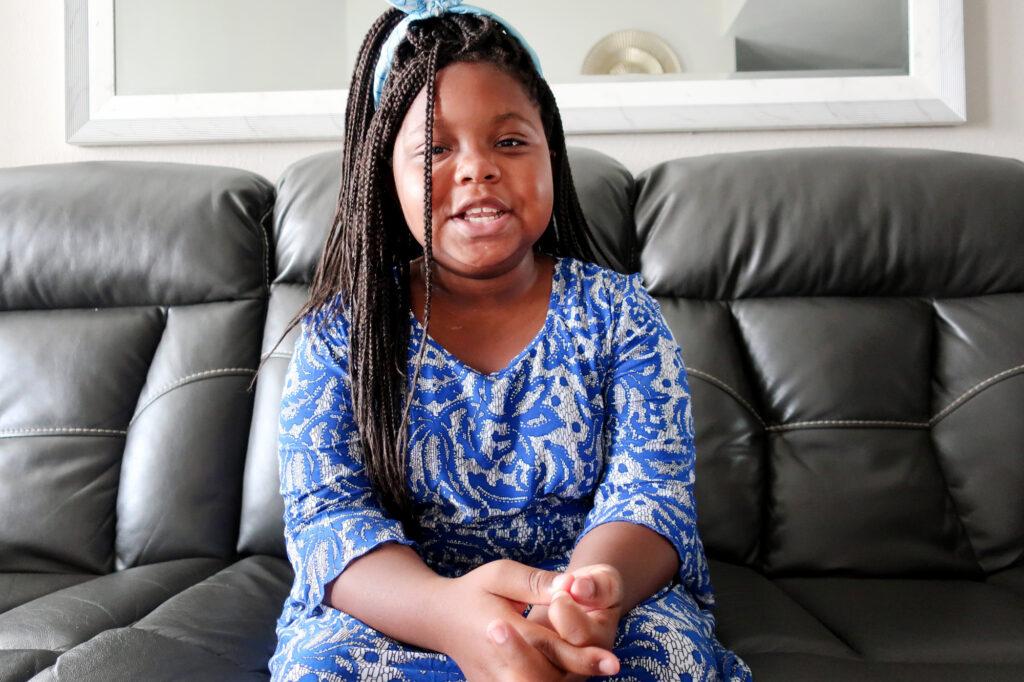
“I don’t think they have TVs in school,” she said, matter-of-factly.
Plus when she was online, Clarissa didn’t like it when her internet was down. Teachers sometimes got frustrated. Sometimes she’d forget her Wi-Fi password. But her main reason that school is better in person is pretty straightforward.
“Because the teacher’s sound won’t go out because she’s not a computer,” Clarissa said.
Kids always tell it like it is.
The full impact of the pandemic on children will likely manifest over the next several weeks.
It’s likely to be significant given that some kids haven’t been inside a classroom in a year and a half — a big deal when you’ve only been on the planet for eight or 15 years. All of the students that CPR interviewed for this story are extremely excited to go back to school but some wonder if they still know how to talk to other kids in person.
Summer school teachers have reported that some kids seemed withdrawn, rigid, almost like they’ve forgotten how to play or interact. While some kids thrived at summer camp, others reported more struggles with kids living in close quarters, more anxiety, more behavior issues, more homesickness because kids became more dependent on parents — and were used to having technology whenever they wanted it.
Experts have stressed the importance of giving students time and space to acclimate back to school and talk about their emotions. Students will need more time to adjust because they’ve fallen out of practice at just physically being around other people other than their families.
Summer camps found campers and staff needed extraordinary amounts of trauma-informed support and care at camp this summer and recommended schools invest in trauma-informed support training, build a sense of community in the classroom, and as much as possible, practice physical movement and hands-on, experiential learning.
For many, even a return to normalcy comes with hesitation.
Anoushka Jani, 17, is grateful to be returning to Legacy High School in the Adams 12 school district. She’s been isolated for almost a year and a half.
“I was in my room my entire school year, like seven hours a day in front of a screen in my room,” she said. “It’s dark in the winter, it’s cold, it’s lonely, it’s not fun.”
Depression and anxiety in her and her friends crept up. But Anoushka pushed forward. She played her violin more. Even running to the nearest Dunkin’ Donuts for a coffee or a bike ride or volunteer work online helped.
She wants to “rebuild” her social skills this year, branching out and making new friends, supporting her current friends, “being surrounded by that strong community that I didn’t have when I was at home.”
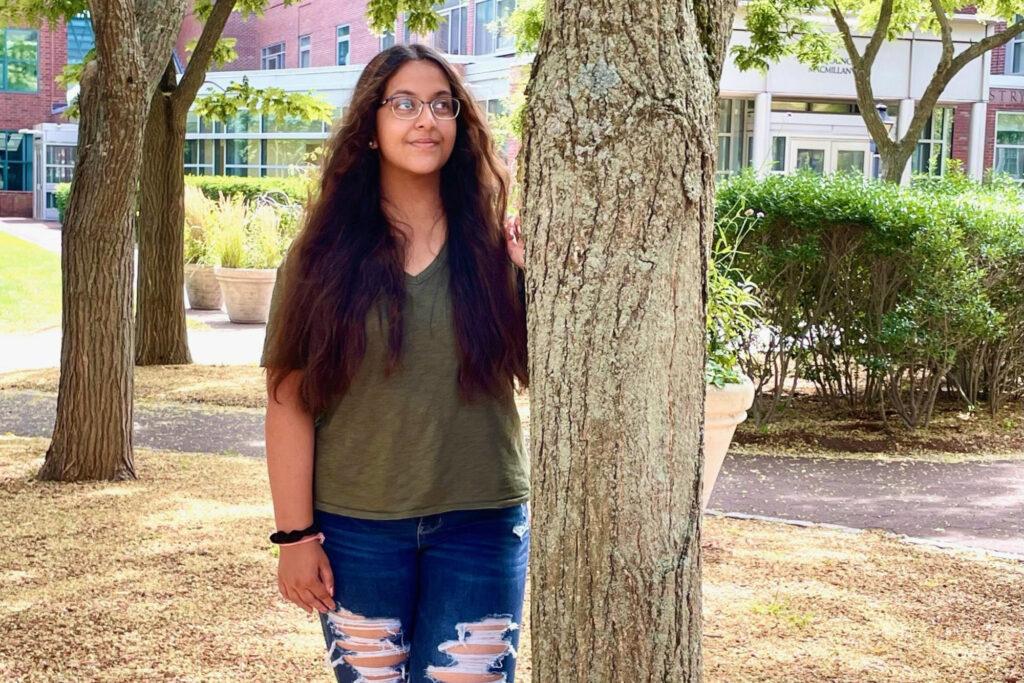
She said many teens feel stunted. Anoushka was 16, a sophomore, when the pandemic started. Now she’s suddenly a senior, someone who's supposed to be a school leader and role model, someone who's thinking about applying to college.
“I turn 18 in two months and that’s also really scary because I’ve spent my entire 17th year in isolation primarily … and I’m almost an adult and I don’t know how to adjust properly yet and I still have to learn all of those things,” Anoushka said.
She knows she’ll get there, but now she’s nervous about the Delta variant. Most of her friends are vaccinated. Some are less worried about returning to school and don’t want to wear masks.
That’s not Anoushka. She said she’s not sure about attending the traditional senior sunrise, where seniors gather and watch a sunrise at the start of school.
“I obviously want to see all my classmates and my friends and partake in this really cool tradition but I’m also scared about COVID because it’s such a real thing,” she said.
And for others, a new school year is going to bring a whole new school altogether, and an attempt at making new friends, all while trying to stay safe.
Madeus Frandina, 13, said he doesn’t love masks but he thinks kids should wear them for a very simple reason: Hundreds of thousands of kids aren’t vaccinated yet. In fact, he just switched schools after the one he and his siblings were enrolled in announced that masks were optional.
“I, for one, do not want to be quarantining every other week and be stuck at home doing online,” he said. “I’m kind of done with that.”
Madeus doesn’t get adults arguing over masks or whether to get a vaccine. But he’s learned why some Black Americans might be skeptical of science and doctors — structural and deeply rooted racism, even in medicine.
“I can understand why some people like people of color, for example, might be hesitant to get the vaccine and I understand that. But some people, primarily white people, I feel like we could do a better job of just accepting science and not doubting it.”
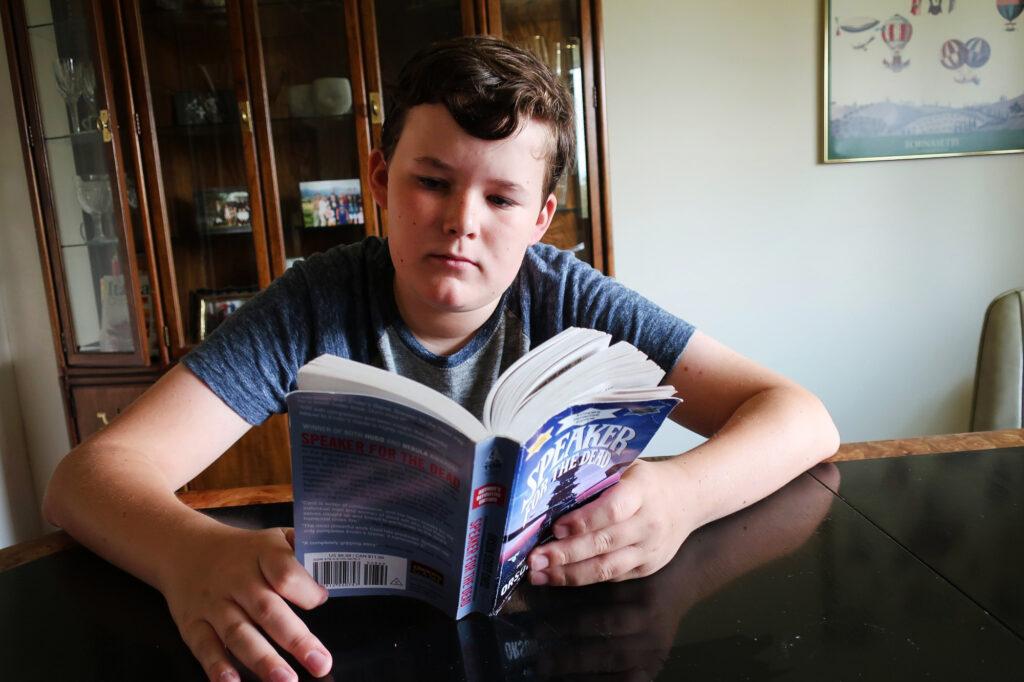
The gregarious eighth-grader cannot wait to return to school. He said about 80 percent of kids had their cameras off during virtual learning. That made it really hard to get discussions going.
“I’m looking forward to being part of a community again ... I love having discussions and I love having talks.”
In the final days of summer, Madeus kicks around a soccer ball with his seventh-grade sister Bella in their new Arvada neighborhood. It’s been a turbulent few years during arguably one of the most stressful years in children’s lives — middle school.
Madeus was last in a school in sixth grade. That Denver school closed at the end of his sixth-grade year. Then in seventh grade, at another school, he had to go online. Then Madeus moved to Arvada and started a school there. But “due to their non-masking policies we decided it would be best to change course,” he said.
He’s not the only one in his family to change schools: Two of his siblings will also be attending a different school this fall. Madeus’ 13-year-old sister Bella is certain school will liven up her life. She said she’s over talking with friends over the phone. It was awkward because not a lot besides online school happened in youths’ lives during the pandemic.
“It was a little weird because we didn’t know what to talk about since we’re not doing anything and we’re like ‘Um have you see any new movies recently?’ and they’re like, ‘Um … no!’”
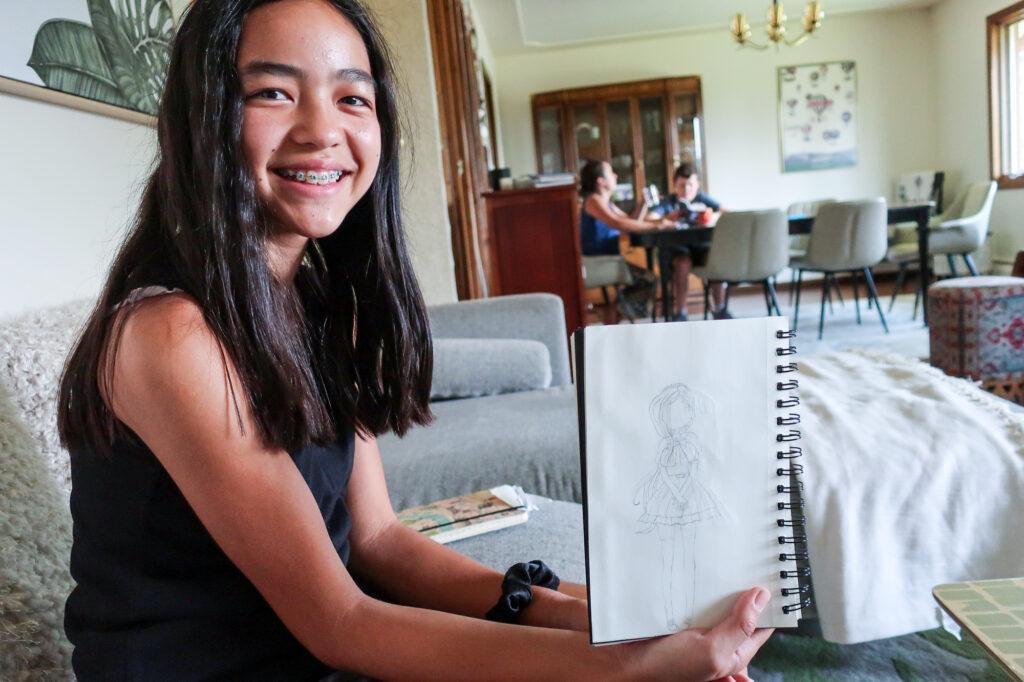
Like all kids, she’s a bit nervous. Bella’s entering her second year of middle school and still, “I haven’t got the real middle school experience of lockers, changing classes, eating in a cafeteria.”
Youth have also lost more than a year of social developmental growth by not being with their peers, not having to negotiate conflicts with friends or needing to advocate for themselves in sometimes uncomfortable situations. As she makes new friends, Bella said her goal this school year is to practice saying no and standing up to peer pressure.
“In middle school and high school there’s definitely people who are going to ask you things, and you want to say ‘No,’ so like going to parties or something like that, so I just want to work on things like that,” she said.
Some students are already facing a new reality in a new school year.
Codi Mendenhall, 15, has already had a couple of weeks of in-person school in Grand Junction.
“My first week was craziness,” she said through a communication device.
Codi has cerebral palsy. More recently she’s had epilepsy and fatigue. Her first week saw smiles and laughter, but also some tears. Codi made it through two full days and three half days, her mother Jen Mendenhall said.
But Codi tires easily and consequently can’t focus or concentrate on what’s going on — even though she wants to be at school. Codi and her mom talked a lot about resilience and patience before she returned to school.
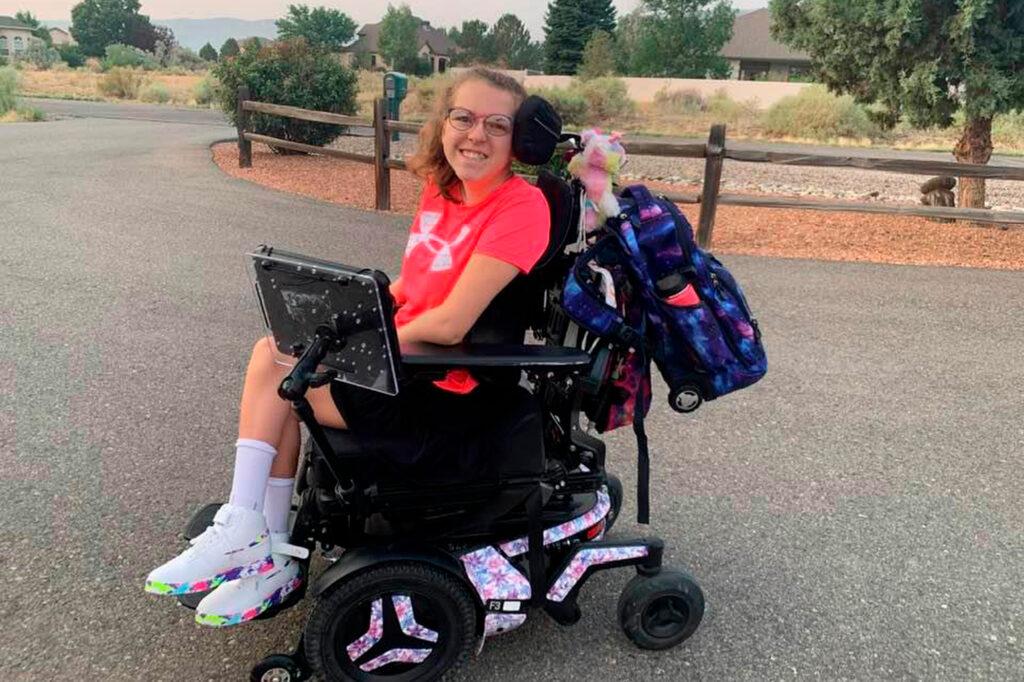
But for now, Codi’s feeling good about the year. She wears a mask and is vaccinated.
“I want to get good grades and hang out with friends,” she said. “I missed everybody.”
If there’s one theme in all of CPR’s interviews with students about the upcoming school year, it’s that kids are desperate to stay in school so they can be around friends.
Incoming seventh-grader Xziavyon Miller, 12, hasn’t been inside a school since fifth grade. Online school “didn’t really feel normal,” Miller said.
But still, with the help of his cousin Sammy as a tutor, Xziavyon pushed through and got straight A’s last year. He hopes to continue that streak. He’s got specific academic goals this year.
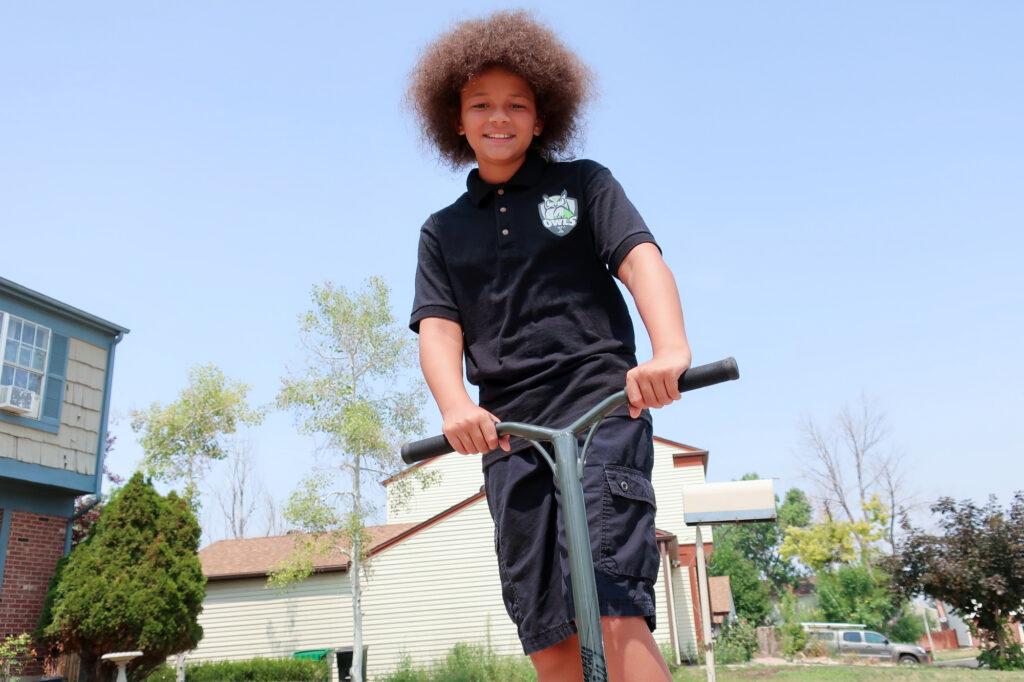
Incoming seventh-grader Xziavyon Miller, 12, hasn’t been inside a school since fifth grade. He's hoping to continue his straight-A streak at the Aurora Science Technology School.
“Social studies is a little difficult for me, but I still kind of understand it, I just want to understand it completely like for example math, because that’s one of my favorite subjects.”
He said a strength he has is that he’s not afraid to ask questions. I ask him how he feels about masks.
Xziavyon pauses. “Um … I feel … nonchalant about it.”
He soon realizes, though, that he’s never had to sit through an entire school day in a mask. But he’s certain it’s worth it. Alongside friends and learning, Xziavyon said he’s eager to get “the life skills that will help you on the job” when he goes back to school.








